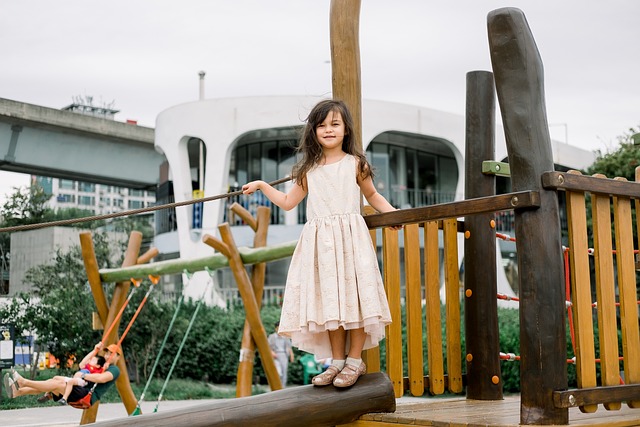Navigating child custody during divorce or separation requires professional guidance to ensure the child's best interests. A custody lawyer assists parents in understanding jurisdiction-specific rules, helping them navigate visitation rights, joint or sole custody arrangements, and creating a comprehensive parenting plan. By balancing parental rights with the child's needs, these lawyers foster stability and a loving environment post-separation, avoiding emotional strain from custody battles. Mediation serves as an alternative to court proceedings, aiming for mutually agreeable custody arrangements.
Ensuring the best interests of a child in custody decisions is paramount for their well-being and future. This article guides parents through the intricate world of child custody, offering insights on understanding legal frameworks, navigating complex agreements, and the pivotal role of a custody lawyer or mediator. We explore joint custody vs. sole custody, visitation rights, and creating a tailored parenting plan that prioritizes the child’s needs above all else, helping to mitigate the stress of a custody battle and foster a stable environment.
- Understanding Child Custody Laws and Parental Rights
- Navigating Custody Agreements and Arrangements
- The Role of a Custody Lawyer and Mediation
- Creating a Parenting Plan: What's in the Best Interest of the Child?
Understanding Child Custody Laws and Parental Rights

Understanding Child Custody Laws and Parental Rights is a pivotal step in ensuring the best interests of a child during divorce or separation. Each jurisdiction has its own set of laws dictating how custody decisions are made, focusing on factors like stability, the child’s well-being, and parental fitness. A custody lawyer can guide parents through this intricate process, helping them navigate the legal framework surrounding visitation rights, joint custody, and sole custody arrangements. These agreements, often reached through mediation or litigation, form the basis of a child’s parenting plan—a crucial document that outlines responsibilities, decision-making processes, and scheduling for both parents.
In a custody battle, it’s essential to recognize parental rights while prioritizing the child’s needs. Parents have the right to reasonable visitation, ensuring they maintain a meaningful relationship with their children. However, these rights must be balanced against what is in the child’s best interest. A custody dispute can be emotionally taxing, making it all the more vital to engage the services of a qualified child custody attorney who can advocate for a fair and beneficial custody arrangement, ultimately fostering a stable and loving environment for the child.
Navigating Custody Agreements and Arrangements

Navigating custody agreements and arrangements is a complex process that requires careful consideration of a child’s best interests. When parents diverge in their views on parenting, a custody lawyer can help facilitate a fair resolution. The goal is to establish a robust parenting plan that balances both parental rights and responsibilities while ensuring the well-being of the child. Joint custody, where both parents share legal and physical decision-making authority, is often pursued to promote stability. However, sole custody may be deemed necessary if one parent can provide a more secure environment or in cases of domestic violence or substance abuse.
Custody mediation plays a vital role in resolving disputes amicably without escalating to a custody battle. A neutral mediator assists parents in reaching an agreement on visitation rights and child support. In the event that a mutually acceptable arrangement cannot be reached, a child custody attorney represents the interests of their client during legal proceedings. They advocate for their client’s position, presenting evidence to support the desired custody arrangement or visitation schedule. The ultimate aim is to finalize a custody agreement that fosters healthy relationships between the child and both parents post-separation.
The Role of a Custody Lawyer and Mediation

When navigating complex child custody disputes, one key figure stands out: the custody lawyer. These legal professionals are instrumental in advocating for a child’s best interests during custody decisions, whether it leans towards sole custody, joint custody, or a tailored parenting plan. They guide parents through intricate legal processes, ensuring their rights and obligations are clearly understood, and helping them achieve fair child visitation agreements.
In situations where negotiations prove challenging, custody mediation emerges as a powerful tool. Mediators act as neutral third parties, facilitating open dialogue between parents to reach mutually agreeable custody arrangements. This collaborative approach can be particularly beneficial in mitigating the emotional and financial toll often associated with custody battles. A well-facilitated mediation not only streamlines the process but also paves the way for more harmonious co-parenting relationships.
Creating a Parenting Plan: What's in the Best Interest of the Child?

When navigating a child custody dispute, creating a comprehensive parenting plan is paramount to ensuring the child’s best interests are at the forefront. This plan outlines the arrangements for physical and legal custody, visitation rights, and parental responsibilities, tailored to meet the unique needs of the child. A custody lawyer can guide parents through this process, advocating for their rights while prioritizing the child’s well-being.
The parenting plan should consider various factors, such as the child’s relationship with each parent, their stability and ability to care for the child, and any specific needs or preferences expressed by the child (age permitting). Joint custody arrangements, where both parents share legal and physical custody, can foster a sense of security and continuity. However, in cases of high conflict or unsafe situations, sole custody may be necessary. Custody mediation can also help resolve disputes amicably, enabling parents to reach mutually agreeable custody agreements without the need for a prolonged custody battle.
When making custody decisions, it’s paramount to prioritize the child’s best interests. This involves a comprehensive understanding of child custody laws, including parental rights and various custody arrangements like joint custody or sole custody. Engaging a custody lawyer or mediator can streamline the process, ensuring fair and mutually agreeable custody agreements. Creating a tailored parenting plan that considers the child’s emotional and physical well-being is crucial to resolving custody disputes effectively. Ultimately, a thoughtful approach, guided by legal expertise, fosters a stable and loving environment for the child.
